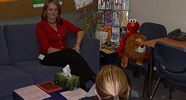|
|
 Acne (1,500) Acne (1,500)
 Addictions (1,500) Addictions (1,500)
 Advice (1,500) Advice (1,500)
 Allergies (1,092) Allergies (1,092)
 Alternative Medicine (1,500) Alternative Medicine (1,500)
 Anti Aging (1,500) Anti Aging (1,500)
 Breakup (1,500) Breakup (1,500)
 Cancer (1,499) Cancer (1,499)
 Dental Care (1,500) Dental Care (1,500)
 Disabilities (1,500) Disabilities (1,500)
 Divorce (1,500) Divorce (1,500)
 Elderly Care (1,498) Elderly Care (1,498)
 Goal Setting (1,500) Goal Setting (1,500)
 Hair Loss (1,500) Hair Loss (1,500)
 Health and Safety (1,497) Health and Safety (1,497)
 Hearing (1,500) Hearing (1,500)
 Law of Attraction (1,499) Law of Attraction (1,499)
 Marriage (1,500) Marriage (1,500)
 Medicine (1,497) Medicine (1,497)
 Meditation (1,499) Meditation (1,499)
 Men's Health (1,500) Men's Health (1,500)
 Mental Health (1,500) Mental Health (1,500)
 Motivational (1,500) Motivational (1,500)
 Nutrition (1,495) Nutrition (1,495)
 Personal Injury (1,499) Personal Injury (1,499)
 Plastic Surgeries (1,500) Plastic Surgeries (1,500)
 Pregnancy (1,496) Pregnancy (1,496)
 Psychology (1,500) Psychology (1,500)
 Public Speaking (1,500) Public Speaking (1,500)
 Quit Smoking (1,500) Quit Smoking (1,500)
 Religion (1,499) Religion (1,499)
 Self Help (1,500) Self Help (1,500)
 Skin Care (1,500) Skin Care (1,500)
 Sleep (1,500) Sleep (1,500)
 Stress Management (1,500) Stress Management (1,500)
 Teenagers (1,492) Teenagers (1,492)
 Time Management (1,500) Time Management (1,500)
 Weddings (1,500) Weddings (1,500)
 Wellness (1,500) Wellness (1,500)
 Women's Health (1,500) Women's Health (1,500)
 Women's Issues (1,500) Women's Issues (1,500)
|
Sally Shaywitz (pronounced shay - wice) M.D. and coauthor of a groundbreaking Yale study on dyslexia is one of the leading authorities on dyslexia and learning disabilities. According to Shaywitz, dyslexia is often misunderstood and the dyslexic is seen as lazy or someone with low intelligence. Dyslexia is no such thing. According to Shaywitz, it is simply "a difficulty in learning to read in a person who has good intelligence, strong motivation, and who has received appropriate teaching." With such a strong view on what dyslexia is, it is understandable that her research indicates that dyslexia occurs at all levels of intelligence up to and including the highly gifted. Because Dr. Shaywitz has studied this disorder for a long time, she has a clear view of what dyslexia is and how it affects the brain. Shaywitz also has a direct plan, that she suggests, when treating an individual with dyslexia. Dr. Shaywitz believes that dyslexia is a significant disability and that the first step in treating a child with Dyslexia is to have all care givers and reading specialists (parents, teachers, literacy specialists, educational psychologists, etc.) working together. Deciding the steps to follow to assure your child the optimum level of learning will be dependent on the severity of the dyslexia. According to Shaywitz, phonics, (relating sounds to letters or groups of letters) is one thing that may help the dyslexic overcome their reading difficulty. If a student has dyslexia and they have an eagerness to learn to read there are ways to help them. However, many children that have dyslexia are labeled as not having the ability to learn. Many undiagnosed dyslexics go through childhood thinking that they are just not as smart as other kids. Since so much of our societal learning is based on reading, this one difficulty can compound into difficulties in other areas of life as well. This is probably due to the fact that these children (or adults) have just never had instruction that helps them to learn in the way that they need to learn. According to Shaywitz, correcting dyslexia completely isn't possible, but you can, in most cases, retrain your brain to respond appropriately if the time and energy are put into the correct areas of instruction. Contrary to popular perception, dyslexia is not just switching around letters or seeing letters backwards. It is much more complex than that and takes a lot of practice to correct. Children do not outgrow dyslexia, they just learn to deal with it and find new ways to learn. In addition to the proper type of instruction, some tips from Dr. Shaywitz include: - early diagnosis
- practice, practice practice
- reading aloud to your children, especially rhyming books like those written by Dr Seuss.
- Encouraging your child to also do things that they enjoy to take a break from reading which is certainly difficult for them.
- "pull apart" spoken words into syllables and have the child clap once for each syllable as they say the word.
As can be seen by Dr. Shaywitz dyslexia research , it is important for parents to continuously remind their children of the things at which they excel, to keep their child from becoming too discouraged about reading. Whether it is soccer, seeing the big picture, problem solving, or something else, they should be encouraged in those areas. You can also point out that many many famous people who are highly successful are also dyslexics including Jay Leno, financial expert Charles Schwab, and basketball great Ervin "Magic" Johnson.
|
|
|



